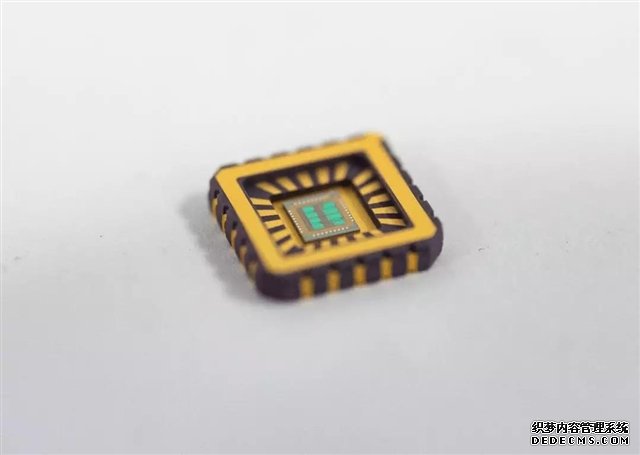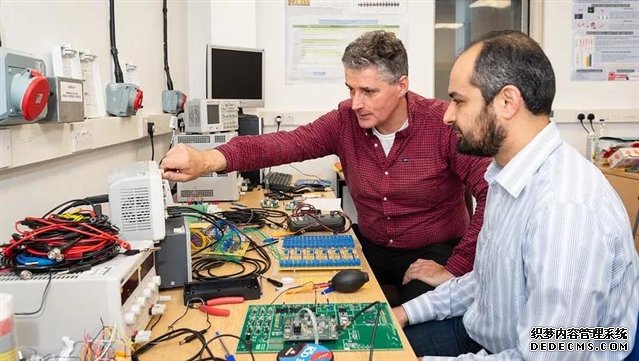









数字识别码:10.1038/s41467-019-13177-3
微信链接:点击此处阅读微信文章
本周《自然-通讯》发表的一篇论文Optimal solid state neurons报告了一种用以制造可再现生物神经元电行为的硅芯片的方法。利用这种方法,有望开发出仿生芯片来修复神经系统中因病而导致功能异常的生物电路。

神经元芯片
图片来源:巴斯大学
英国巴斯大学的Alain Nogaret及同事设计的微电路模仿离子通道,类似生物神经元一样整合原始神经刺激并做出响应。之后,作者在硅芯片中再现单个海马神经元和呼吸神经元的活动。通过60个电刺激方案,作者发现固态神经元产生的电响应几乎和生物神经元一模一样。

Alain Nogaret教授和Kamal Abu-Hassan博士在实验室中。
图片来源:巴斯大学
作者表示,呼吸神经元(比如他们建模的神经元)耦合呼吸节律和心脏节律,对呼吸性窦性心律不齐负责。因年龄或疾病而丧失这种耦合是睡眠呼吸暂停和心力衰竭的一种预后。他们认为一种像呼吸神经元一样适应生物反馈的装置或许可以在未来提供一种潜在的治疗方法。
摘要:Bioelectronic medicine is driving the need for neuromorphic microcircuits that integrate raw nervous stimuli and respond identically to biological neurons. However, designing such circuits remains a challenge. Here we estimate the parameters of highly nonlinear conductance models and derive the ab initio equations of intracellular currents and membrane voltages embodied in analog solid-state electronics. By configuring individual ion channels of solid-state neurons with parameters estimated from large-scale assimilation of electrophysiological recordings, we successfully transfer the complete dynamics of hippocampal and respiratory neurons in silico. The solid-state neurons are found to respond nearly identically to biological neurons under stimulation by a wide range of current injection protocols. The optimization of nonlinear models demonstrates a powerful method for programming analog electronic circuits. This approach offers a route for repairing diseased biocircuits and emulating their function with biomedical implants that can adapt to biofeedback.
(来源:科学网)
特别声明:本文转载仅仅是出于传播信息的需要,并不意味着代表本网站观点或证实其内容的真实性;如其他媒体、网站或个人从本网站转载使用,须保留本网站注明的“来源”,并自负版权等法律责任;作者如果不希望被转载或者联系转载稿费等事宜,请与我们接洽。